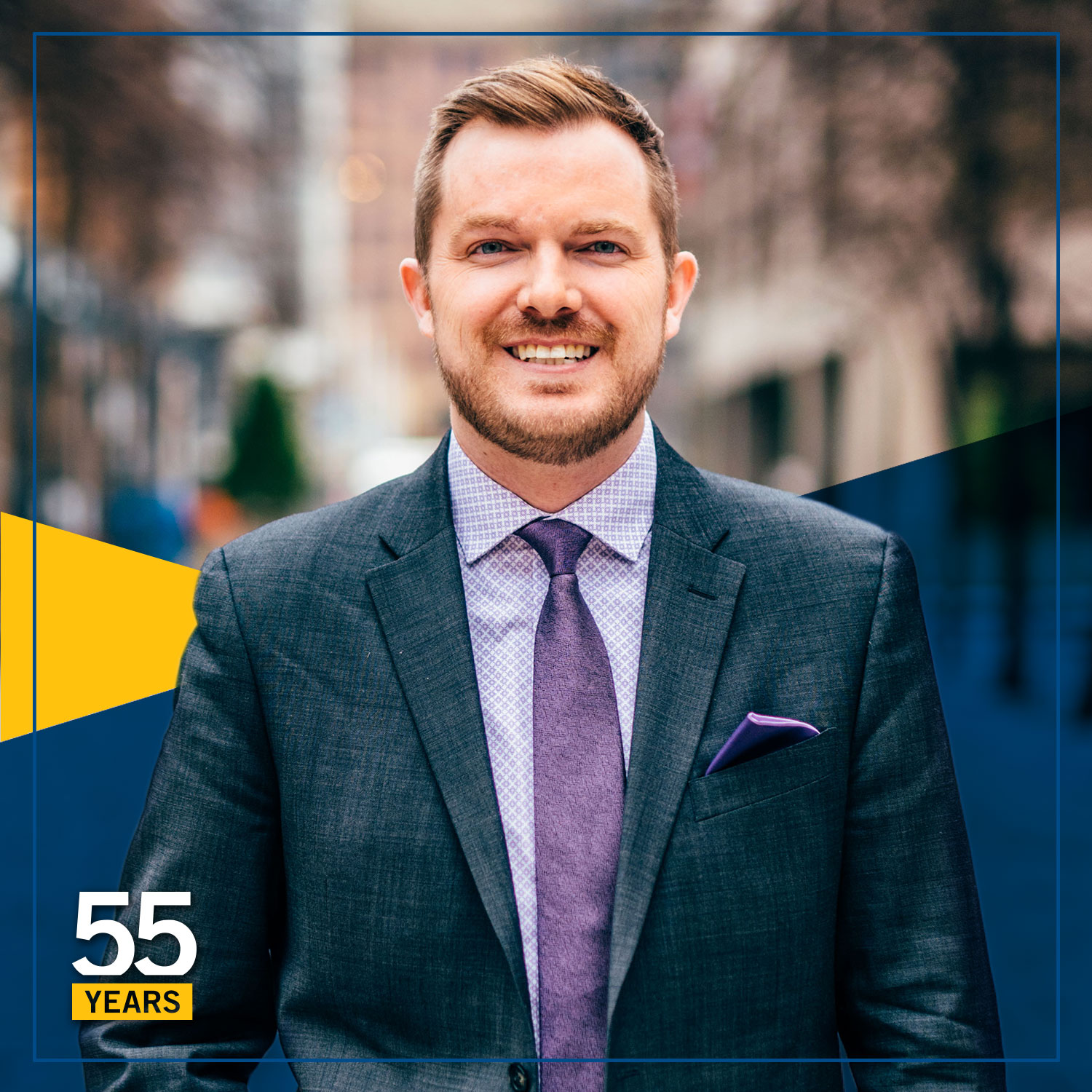
Matthew Chater
Being a kid isn’t easy, and when everyday struggles are combined with challenging situations, a child’s self-esteem can plummet.
Matthew Chater, the President & CEO of Big Brothers Big Sisters of Canada, believes that having a mentor can help turn things around for young people.
“I lived through bullying and isolation myself,” he says. “As a gay youth, I was targeted as different.”
Instead of letting this experience make him retreat from the world – Matthew who grew up in London, Ontario – became a champion for other children facing hardships. As a high school student, he did co-op placements as an elementary school education assistant and he volunteered with Big Brothers Big Sisters (BBBS).“Through my volunteer work I was able to share tools to navigate adversity with my ‘Little Brother,’” Matthew says. “When pro-social adults mentor young people, it builds up their confidence. They have to see it to be it.”
In university, Matthew studied psychology and education at Lakehead’s Thunder Bay campus and every summer he worked as a camp director with the YMCA of Western Ontario. His goal was to build a career focused on helping young people thrive and excel.
After graduating from Lakehead, Matthew returned to London to do a master’s degree in educational policy at Western University. It was also an opportunity to begin volunteering with Big Brothers Big Sisters again. While he was in the London BBBS office, a job posting for a mentoring coordinator caught his eye. “I’d been looking for part-time work while I was doing my master’s,” he explains.
It soon became a full-time role and Matthew rapidly worked his way up the ranks, eventually becoming the CEO of Big Brothers Big Sisters of London and Area. Then, in May 2018, Matthew was chosen as the President and CEO of Big Brothers Big Sisters of Canada, headquartered in Toronto.
Big Brothers Big Sisters of Canada is a federated organization comprised of 102 member agencies serving more than 1,100 communities across the country. Participation in BBBS programs supports social emotional competence, mental health and wellbeing, and educational and employment readiness.
“In the past,” Matthew says, “Big Brothers Big Sisters has been seen as a nice service, but not an essential service. This needs to change.”
Well-established brain science has found that childhood adversities can create toxic stress that negatively affects brain development. Fortunately, these effects aren’t irreversible.
“Research demonstrates that relationships and mentorship can help build the brain back up,” Matthew says. “Mentored youth and children are two times more likely to stay in school, more likely to get a higher paying job, and give back to their community.”
Matthew prides himself on the fact that BBBS is there to ensure that all young people realize their full potential – newcomers, Indigenous people, individuals with disabilities, children in care, children from single-parent homes, and urban, rural, and LGBTQ youth. He recognizes that young people’s needs are complex and that developmental relationships are crucial to their wellbeing and future success.
“When I was a kid and I was facing a tough moral or ethical dilemma,” Matthew says, “I would always ask my grandmother for guidance and advice. I want all young people to have opportunities to build networks of support through intentional mentorship.”
